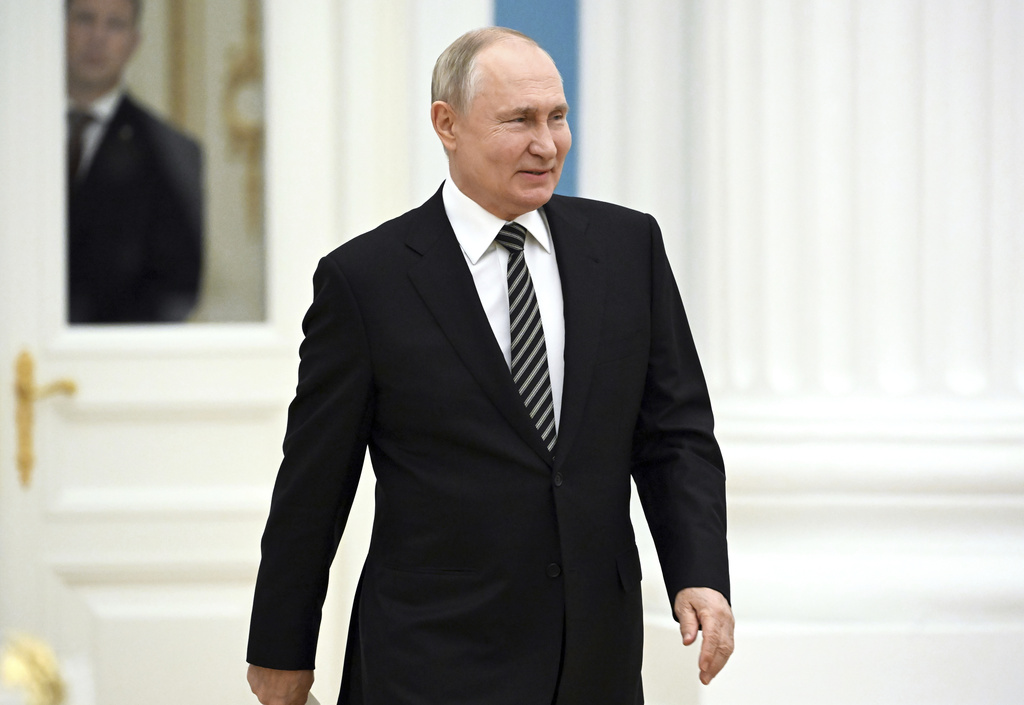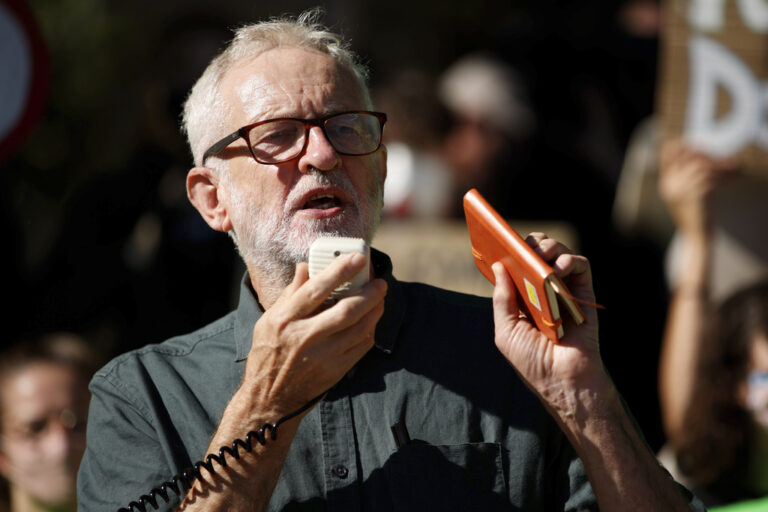An explosive claim that Russian President Vladimir Putin had suffered a heart attack spread across the globe this week, amplified by news outlets and social media users.
The news didn’t come from the Kremlin, which dismissed it as a “hoax,” nor verified reporting in Russia. It came from a single anonymous account on the messaging service Telegram that provided no evidence, yet was viewed hundreds of thousands of times.
Misinformation researchers warn the account isn’t credible and has spread baseless claims about Putin’s health in the past. But the case highlights the dangers of seeking information on the loosely moderated messaging platform that has surged in popularity amid Russia’s war in Ukraine.
Here is a closer look at the facts.
CLAIM: Russian President Vladimir Putin suffered a serious heart attack on Sunday and needed to be resuscitated.
THE FACTS: Kremlin spokesman Dmitry Peskov on Tuesday called the claim “just another hoax,” telling reporters that “everything is fine.”
Photos released by Russian media that day showed Putin at a meeting at the Kremlin. On Wednesday, he was seen on state television directing a simulated nuclear strike drill via video call.
The denial came after news of the supposed cardiac arrest was picked up earlier that day by multiple online and television news outlets around the world, including in Australia, the United Kingdom and India. It was also widely shared across social media.
The source of all of these reports was a popular Telegram account, General SVR, which claims to have insider information from the Kremlin. But misinformation researchers warn it’s not reliable.
“Its mocking and dismissive attitude toward the Kremlin also appeals to English-speaking audiences. Yet this channel lacks credibility, having made (most likely) false claims about Putin’s health before,” Scott Radnitz, a professor of Russian and Eurasian Studies at the University of Washington, told the AP in an email. “Many posts describe Putin’s body double giving speeches at international summits. And the late Yevgeny Prigozhin is supposedly alive and well in Venezuela.”
Indeed, in the post Monday, the account not only alleged that Putin was found in his bedroom on Sunday convulsing on the floor, it also claimed that a body double has recently been appearing in his place at all official meetings and events.
The Telegram post in Russian has nevertheless been viewed more than 400,000 times and has been forwarded to other channels around 22,000 times, according to data from Telegram analysis tool TGStat. The channel also gained at least 5,000 subscribers between Monday and Tuesday.
The account did not return a request for comment this week. Experts say that while there has been much speculation about who runs the channel, its author remains anonymous.
This isn’t the first time the account’s dubious claims about Putin’s health have been believed by media outlets abroad, according to Jon Roozenbeek, a postdoctoral fellow at the University of Cambridge whose research focuses on misinformation.
For example, the account, which has been around since 2020 and has more than 374,000 subscribers, posted a similar claim about Putin falling down stairs in December last year, which was also picked up by multiple tabloids at the time.
Telegram, already a popular messaging service in Eastern Europe, has become especially prominent in Russia amid the war in Ukraine because Western social media has been restricted and state media is not a reliable source of information, experts said.
“Telegram has emerged as an important information battlefield following Russia’s re-invasion of Ukraine,” said Eto Buziashvili, a research associate at the Atlantic Council’s Digital Forensic Research Lab who specializes in Russia and influence operations.
But the platform, which is only lightly moderated, has been a hub of misinformation around the conflict. Telegram did not respond to a request for comment.
Most Russians don’t necessarily rely on “sensationalist” channels like General SVR, Roozenbeek said. But the account’s content could be a blind spot for outside observers.
Experts noted that posts such as the one falsely suggesting a heart attack play into prior speculation and rumors around the 71-year-old Russian leader’s health, which have been spread by everyone from anonymous internet users to Russian intelligence services. A Telegram account that claims to offer access to secret, inside information could also be appealing to readers, Buziashvili said.
“It is simply one of those things that many Western observers, including journalists, kind of want to be true (because of their justifiable opposition to the war and dislike of Putin), and so we sometimes become a bit careless,” Roozenbeek wrote.
“You see the same with outrageous stories about Kim Jong-un,” he added, referring to the North Korean leader.
(AP)











